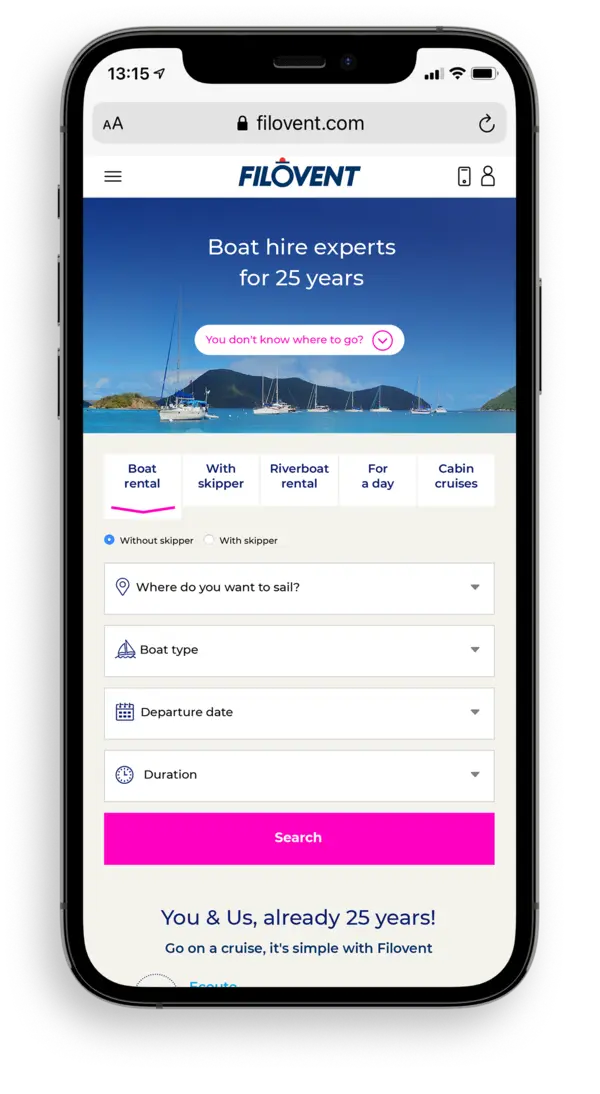Why go on a cruise to Africa?
Embark on a cruise to Africa and be amazed by fascinating destinations where each port of call invites you to experience unforgettable moments. From the crystal-clear waters of the Indian Ocean to the wild Atlantic coast, via exotic islands such as Zanzibar and Madagascar, this trip immerses you in magnificent landscapes and exceptional biodiversity. Explore legendary ports such as Cape Town, discover the majestic deserts of Namibia, or discover the vibrant cultures of West Africa. With sea safaris, heavenly beaches, coral reefs and authentic villages, Africa offers an incomparable natural and cultural wealth. Whether you are looking for wild nature, relaxation or extraordinary adventures, our cruises in Africa guarantee you a unique experience and memorable souvenirs.
What do our cruises in Africa involve?
Our types of boats for unforgettable cruises:
- The Expedition Ship: ideal for explorers in search of adventure in extreme environments. With its spacious cabins, outdoor jacuzzis and panoramic lounges, it combines comfort and exploration. Its 12 Zodiacs allow for landings in isolated places such as fjords or wild coasts, for an immersive experience.
- The Safari River Boat: a setting of elegance and privacy on Lake Kariba in southern Africa. Its 8 luxurious cabins, small swimming pool and sun deck offer a relaxing experience in the heart of magnificent landscapes. Ideal for observing the local flora and fauna from its large bay windows or a telescope.
- The historic yacht: perfect for lovers of history and authenticity. Built in 1950 and restored in Saint-Louis, it is the only boat sailing on the river. Its retro charm and local symbolism make it a unique option for exploring lands of history and tradition.
What is the best time for a cruise in Africa depending on the region?
- Southern Africa (Lake Kariba, Namibia, South Africa): May to October (dry season): ideal for moderate temperatures and perfect conditions for wildlife watching, especially on safari cruises. The days are sunny, and the sparse vegetation allows for better visibility of the animals.
- West Africa (Senegal, Gambia, Niger River): November to April: the dry season offers a mild and pleasant climate, perfect for exploring the rivers, coastal villages and landscapes. Avoid the rainy season (June to October) for a more comfortable trip.
Depending on your destination, choose the right period to maximize your experience and enjoy the best weather conditions.
What activities are available on a cruise in Africa?
- Visit bird parks: explore bird sanctuaries where you can observe rare and endemic species in their natural habitat, a true paradise for birdwatchers.
- Pirogue excursions: glide along calm waterways in traditional canoes to discover aquatic fauna and the surrounding landscapes up close, in a peaceful and authentic atmosphere.
- Visits to traditional villages: meet the local inhabitants, discover their way of life, their customs and their craftsmanship, for an enriching cultural experience.
- Carriage rides: enjoy a picturesque carriage ride through unique African landscapes, ideal for discovering the region at a leisurely pace.
- Land and water safari: combine wildlife watching from the water and on dry land to maximize your chances of coming across iconic animals such as elephants, hippos and crocodiles in their natural environment.
How much does a cruise in Africa cost?
| Types of boat | Cabin | April to October | November to March |
| River boat | Double cabin | 15,200 USD | 15,200 |
| Double cabin with pulpit | 15,600 USD | 15,600 USD | |
| Double cabin with extra child's bed | 18,900 USD | 17,500 USD | |
| Yacht | Upper deck | 7,840 USD | 8,100 USD |
| Main deck | 5,600 USD | 5,800 USD | |
| Vessel | Cabin | 14,300 USD | 10,800 USD |
| Suite | 21,400 USD | 16,000 USD |
The price includes:
- Meals included in the program.
- The activities included in the program.
- Some drinks included (such as water, wine and sometimes soft drinks).
- Tips (excluding boat and lodge staff).
- Internal transfers or flights (depending on the destination).
The price does not include:
- Meals not included in the program.
- International flights and their taxes.
- Tips for boat and lodge staff and guides.
- Insurance (cancellation, repatriation, luggage).
- Optional excursions.
- Visas (particularly Zimbabwe and Namibia on some programs).
Useful information for your cruise in Africa
What language is spoken in Africa?
The official languages vary according to the region and the country. In southern Africa, such as in Namibia or South Africa, English is widely spoken, while French predominates in regions such as Senegal and other West African countries. In some rural areas, local languages such as Wolof, Swahili or Afrikaans can be heard, offering a glimpse of Africa's cultural richness.
What documents do I need to travel to Africa?
- Passport: your passport must be valid for at least six months after your return.
- Visa: Visas are required for many African countries, such as Zimbabwe, Namibia and Botswana. They can often be obtained on arrival, but it is best to check the formalities before departure.
- Vaccinations: some countries require proof of vaccination against yellow fever, particularly in West and Southern Africa. Other recommended vaccinations include hepatitis A, hepatitis B and typhoid.
What clothes should I take on a cruise in Africa?
- For hot regions (Southern Africa, West Africa): choose light, loose-fitting, breathable cotton or linen clothing. Bring a cocked hat, sunglasses and sunscreen to protect you from the heat.
- For safaris and excursions: opt for neutral-colored clothing (beige, khaki), comfortable walking shoes, a scarf to protect against the dust and a light jacket for cool mornings.
- Specialized equipment: for activities such as water safaris or dugout canoe trips, remember to bring water shoes and suitable clothing.
What currency is used in Africa?
Currencies vary from country to country:
- South Africa: South African Rand (ZAR).
- Namibia: Namibian dollar (NAD), with Rand also accepted.
- Zimbabwe: US dollar (USD) often used.
- Senegal and West Africa: CFA franc (XOF).
Bring cash for small expenses in villages or remote areas, even if credit cards are accepted in large cities and hotels.
What activities and experiences can you enjoy on a cruise in Africa?
- Visits to bird parks to observe rare and endemic species.
- Excursions in dugout canoes to navigate the lakes and rivers and encounter the aquatic fauna.
- Visits to traditional villages to discover the local culture and crafts.
- Nautical and land safari to observe emblematic animals such as elephants, hippopotamuses and crocodiles in their natural habitat.
- Carriage ride to explore picturesque landscapes at a leisurely pace.
Is it customary to leave tips?
It is customary to leave tips for guides, drivers and crews. Allow about $5 per day per person for crews, especially in lodges and on boats.
What is the electricity situation in Africa?
- South Africa, Namibia: 220 V, type D, M or N plugs.
- West Africa (Senegal ): 220 V, type C and E plugs.
We recommend that you bring a universal adapter and check the compatibility of your electronic devices.
Are medical services available in Africa?
Ships generally have a medical service for basic care. However, in remote regions such as Zimbabwe or Botswana, medical evacuation may be necessary in an emergency. Travel insurance including medical expenses and evacuations is strongly recommended.

